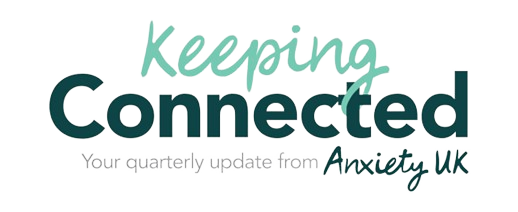Tips for managing anxiety following the COVID-19 global emergency
By Andrea Callan
With unprecedented changes brought by the pandemic in recent years, we have collectively moved through much uncertainty and change. This brought a significant impact on daily life, with the World Health Organisation showing a 25% increase in cases of anxiety and depression across the world¹ as a result.
With social adjustments around quarantines, social distancing and social bubbles, the changes and different ways of relating to others have been especially challenging for those who may experience social anxiety.
Back to normal?
Even though things may seem ‘back to normal’, we can acknowledge that our nervous systems have experienced significant stress through a collective trauma², much of which relates to socialising. Whilst externally, events and social venues may be in full swing, some people may struggle to readjust or just don’t feel ready. Research found that ‘easing social restrictions brought about additional burden to people who experienced higher social anxiety symptoms.³
Whilst it can be tempting to seek to avoid unnecessary social interactions, studies also show that social connection positively affects mental health, physical health and risk of mortality.⁴ This blog article explores gentle ways to explore increasing social connection for well-being.
Create time specifically for relaxation
Firstly, be sure to find ways to intentionally create rest and peace in your system. Perhaps by relaxation techniques such as progressive muscle relaxation meditation, as recommended by the NHS.⁵
Gradually increase social exposure
You could challenge yourself to have a short, casual conversation at the grocery shop or say hello to someone new you see in your daily routine. The idea is to find opportunities to increase interactions with others, in a way that avoids overwhelm and builds your presence in social situations.
Challenge limiting beliefs
After taking courageous action, give yourself space to reflect on any limiting beliefs that may come up. Journaling can be a way to separate stories that may come up with anxious thoughts from objective facts.
The ABC model is a Cognitive Behavioural Therapy (CBT) approach for first noting the activating event (A), beliefs about the event (B) and consequences (C).
Create time to recharge the social battery
Even for people who enjoy being social, it still takes energy to recharge the ‘social battery’. Character traits can also affect this, such as preferences for introversion or extroversion, neurodivergence, shyness, as well as mental well-being and anxiety levels. So, check where you may be at each day.
Engage in regular exercise
It may seem surprising, but more exercise can help with anxiety. That’s because the more you build resilience physically, the stronger the connections in your brain become to help build your mental strength in times of stress or anxiousness.
Seek support
It can be helpful to check in with friends who also experience social anxiety – this can be supportive for shared understanding in your journey, as well as for staying accountable and celebrating wins together. There is also professional care available, such as the therapy services that Anxiety UK offer to members.
References:
¹ COVID-19 pandemic triggers 25% increase in prevalence of anxiety and depression worldwide, World Health Organisation.
² ‘A collective trauma’: Covid keeps its grip on mental health of many patients, The Guardian.
³ A Global Longitudinal Study Examining Social Restrictions Severity on Loneliness, Social Anxiety, and Depression, National Library of Medicine.
⁴ Social Relationships and Health: A Flashpoint for Health Policy, National Library of Medicine.
⁵ How to cope with anxiety – a relaxation technique, NHS, Youtube.
‘Andrea writes about personal development and professional transformation. She is passionate about the importance of social connection for well-being.’
The views expressed by the contributor are not necessarily those of Anxiety UK, nor can we guarantee the accuracy of the information provided. If you would like to write a blog for AUK please email [email protected] for more information.









